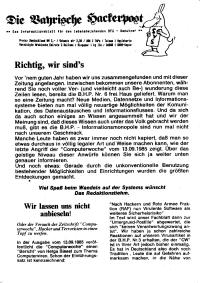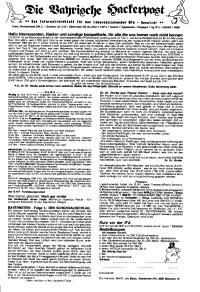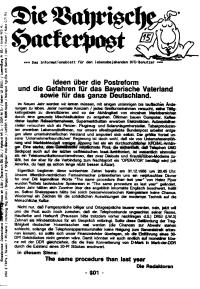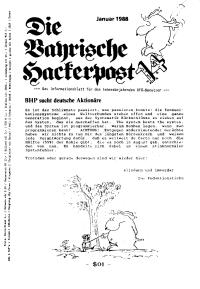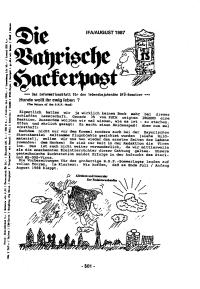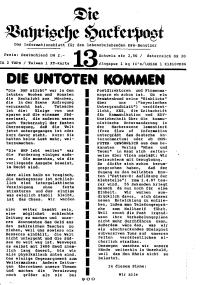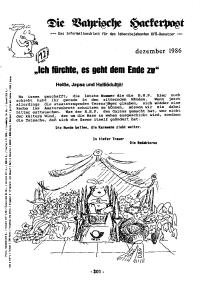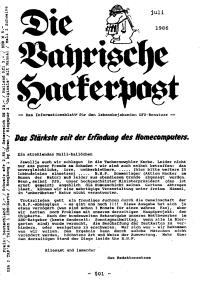Copy Link
Add to Bookmark
Report
NL-KR Digest Volume 11 No. 06

NL-KR Digest (Thu Apr 22 16:04:28 CDT 1993) Volume 11 No. 6
Today's Topics:
Announcement: Anthropomorphic Systems of Speech Recognition (ASRS '93)
Submissions: nl-kr@cs.rpi.edu
Requests, policy: nl-kr-request@cs.rpi.edu
Back issues are available from host archive.cs.rpi.edu [128.213.3.18] in
the files nl-kr/Vxx/Nyy (ie nl-kr/V01/N01 for V1#1), mail requests will
not be promptly satisfied. Starting with V9, there is a subject index
in the file INDEX. If you can't reach `cs.rpi.edu' you may want
to use `turing.cs.rpi.edu' instead.
BITNET subscribers: we now have a LISTSERVer for nl-kr.
You may send submissions to NL-KR@RPITSVM
and any listserv-style administrative requests to LISTSERV@RPITSVM.
------------------------------------------------------------------
To: nl-kr@cs.rpi.edu
Newsgroups: comp.ai.nlang-know-rep
From: M.Cooke@uk.ac.shef.dcs
Subject: Announcement: Anthropomorphic Systems of Speech Recognition
Reply-To: M.Cooke@uk.ac.shef.dcs
Date:Tue, 30 Mar 93 11:25:59 GMT
ANTHROPOMORPHIC SYSTEMS OF AUTOMATIC SPEECH
RECOGNITION AND SYNTHESIS (ASRS' 93)
St. Petersburg, Russia
June 30-July 2
At present a lot of organizations invest considerable amounts of
money, know-how and effort to solve problems of speech
recognition and synthesis by machine. It is stimulated by practical
requirements, and scientific research has been concentrated on the
optimal solutions in the domain of speech technology systems.
The peculiarity of the present situation is that most systems of
speech recognition and synthesis are being built around
mathematical theories of signal processing and do not involve our
knowledge of actual processes taking place in the acts of speech
production and perception. Speech technology has reached its
major breakthrough in speech recognition systems via application
of dynamic programming and hidden Markov models, and in
speech synthesis - using large basic units such as diphones and
allophones. Further success has been stimulated by an increasing
computing power of the hardware being used.
Most existing applied systems are, generally speaking, far from
real biological, neural and psychophysiological systems. The
designers of applied systems are not inclined to reach resemblance
between the functioning of their systems and that of human beings.
We believe that the knowledge about a human being might be
helpful for the improvement of the automatic understanding of
human speech and enhancement of synthesis-by-rule systems,
taking into account the following arguments:
- At present basic knowledge and the results of
research of human speaking behaviour are
considered as an important resource for the progress
of automatic speech recognition, understanding of
spoken language and synthesis-by-rule;
- The users who order a speech technology system
usually formulate their requirements only in terms
of speech communicative behaviour;
- It is necessary to take into account the fact, that the
result of a project in speech technology is oriented
towards involvement of a human user in any case;
thus the knowledge of his communicative behaviour
should be incorporated in an automatic device.
The Organizers of the proposed symposium invite scientists in all
fields of research to participate in discussions and to work out
solutions to the problems that are facing them in the domain of
anthropomorphic models and systems.
We propose the following topics of our meeting:
1. Speech processing in biological systems.
2. Perspectives for the development of
anthropomorphic systems.
3. Role of research in speech science for the
development of speech technologies.
4. Types of knowledge that can be implemented in
speech processing systems.
5. Methodological problems of experimental research
of speech communicative process (using natural vs.
laboratory - simulated speaking behaviour and
signals).
6. Important features of human user behaviour that are
being developed in the process of speech
communication between a person and a speech
processing system.
7. Role of symbol (phoneme, allophone) units in the
processes of perception and speech generation and
their relation to the problems of automatic speech
synthesis and recognition.
8. Organization of a lexicon and its role in a speech
process.
9. Organization of a word processor and a linguistic
knowledge base of various levels.
10. User requirements to psychologically comfortable
conditions of operations with a speech interface.
Precise dates of ASRS'93:
- for scientific sessions: June 30-July 2
- for social and cultural programme: June 28-29 and July 3-4.
Important Dates:
- April 10, 1993 - last date for visas submission
- April 10, 1993 - last date for abstracts submission
(about 2000 words, by E-mail to neva@coninfo.spb.su)
- May 15, 1993 - last date for registration fee
- June 27, 1993 - first date arrival to St. Petersburg
Registration fees:
- 300 USD for participants,
- 100 USD for students,
- 50 USD for accompanying persons.
Accommodation:
The Organising Committee proposes the Educational Center hotel
(very cosy and comfortable) to be the most suitable for participants
because our symposium will be held there. It is also possible to
book three-, four- or five-stars hotels. Prices range from 60 USD
for single room in the hotel of the Educational Center to 240-285 USD
in a five-star hotel.
ASRS '93 Organixing Committee
Valery Galloonov
Valentina Lublinskaja
-------------------------------
End of NL-KR Digest
*******************













